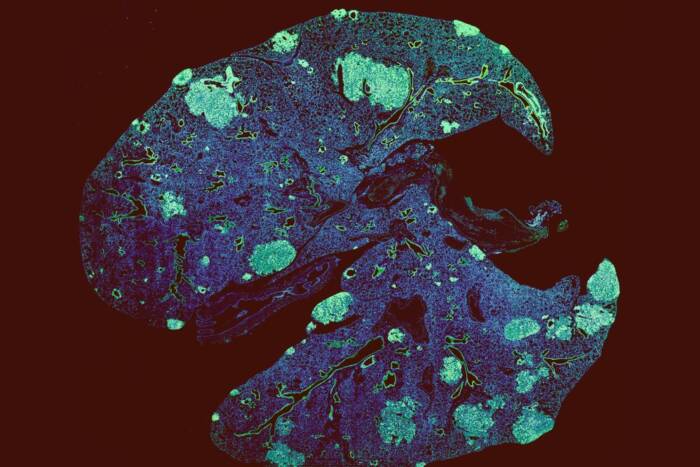New research shows that mosquitoes sense repellent through their legs
For decades, people have fended off mosquitoes by slathering themselves with DEET, the active ingredient in many insect repellents. This chemical has long assumed to turn off bloodsuckers with its smell or taste, but new research reveals that this repellent has an additional and unexpected dimension that explains why it works so well.
Rockefeller’s Leslie Vosshall and her colleagues made the surprising discovery that insects sense DEET through their legs—and that their displeasure for touching the repellent is what keeps them away from DEET-covered skin.
Previously, Vosshall developed mutant mosquitoes that lose some of their sense of smell. These mutants remained attracted to people covered in DEET, although they did refrain from landing on their skin and biting. Emily Dennis, a graduate student in the Vosshall lab, set up a series of behavioral experiments to figure out how the repellent works. Together with fellow student Olivia Goldman, they found that bitter-tasting chemicals slathered on human skin do not deter mosquitoes from biting people, suggesting that their typical avoidance of DEET isn’t due simply to its flavor.
Next, Dennis applied special glue to the insects’ legs, which are covered with tiny hairs that can sense molecules. With their limbs thus desensitized, the mosquitoes devoured DEET-covered skin as if it were bare—making it clear that their legs play a central role in sensing and avoiding the chemical.
Although DEET prevents mosquito bites to some extent, better repellents are urgently needed to protect people from diseases such as yellow fever, dengue, and Zika. The new findings, published in Current Biology, are the first to tease apart the sensory systems through which the insects detect DEET, and the scientists hope they might help in the design of more effective and longer-lasting alternatives.



